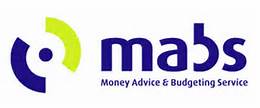You are behind in your mortgage repayments. You’ve been trying to keep on top of them, but after getting a little behind last year, one thing after another keeps going wrong and you haven’t been able to make up the difference: electricity, heating and your car insurance premium jumped astronomically, your partner has been out of work with an illness and your eldest child has needed extensive Leaving Cert grinds. All this afterbeing put on a 3 day week.. It’s not like you can ask family to bail you out – but you can’t keep going like this.
Unfortunately, situations like the above are an all-too-familiar reality for thousands of people across Ireland – and that’s why MABS (Money Advice and Budgeting Service) was established. It’s free, confidential, independent and non-judgmental; no-one is reported to MABS – they exist to help people to get out of debt of all kinds, or those who are at risk of debt. In fact, that’s why many other avenues may lead you to MABS; charities, State services and other organisations to which you may turn in financial difficulty will often refer you to the team. John Lowe of MoneyDoctors.ie gives the low-down on this wonderful service and why he thinks ALL staff in MABS offices are remarkable people.
Do I need MABS?
You could benefit from contacting MABS if you:
- Are worried about your financial situation or are in debt.
- Have been contacted by a creditor and are concerned by or don’t understand the communication.
- Have had legal action taken against you by a creditor.
- Are in danger of having your assets repossessed.
- Have experienced a loss of income and find yourself unable to meet your financial commitments.
How can MABS help?
MABS provides practical, applicable financial advice and can advocate on your behalf where necessary. It can:
- Help you to create a budget.
- Make you aware of any entitlements or aid that may be of benefit to you.
- Negotiate with creditors.
- Help to set up payment systems.
- Ensure you are able to access appropriate support services going forward.
MABS’ help usually falls under one of two headings: voluntary debt solutions, or statutory debt solutions (under the Personal Insolvency Act 2012 or other relevant legislation). It can also provide you with information on:
- Debt Relief Notice (DRN) – dealing with qualifying debts of up to €35,000 for those with a very low disposable income or assets and no realistic prospect of settling their debts within the next three years.
- Debt Settlement Arrangement (DSA) – the agreed settlement of unsecured debts over five to six years
- Personal Insolvency Arrangement (PIA) – settlement and/or restructuring of secured debts of up to €3m over six to seven years.
What do I need to do?
MABS helps those who help themselves, so it exists to support those who can’t pay – not those who won’t pay. Under the Abhaile Scheme, they will even pay up to € 500 each for consultations with an accountant / Personal Insolvency Practitioner and /or legal representative if you cannot.
When working with them, you must be prepared to:
- Accept responsibility for your debts and be willing to work to tackle your finances.
- Disclose any requested information re your debts and creditors.
- Treat the team with respect: don’t bail on appointments without contacting MABS in advance, as you are not only inconveniencing the team, but taking resources away from others in need.
Who should I contact?
You can find your local MABS office on www.MABS.ie/contact-MABS; contact the MABS helpline from Monday-Friday, 9am-8pm, on 0761 07 2000; or arrange a call back by emailing helpline@mabs.ie. You could also go to the Insolvency website ( www.isi.gov.ie ) where you can access contact details for up to 100+ Personal Insolvency Practitioners (PIPs) including yours truly – the go-between debtors and creditors – if you require DSA, PIA or bankruptcy services.
Now in mid 2024, let me give you just one word – hope. No matter how bleak, there is always a solution.

